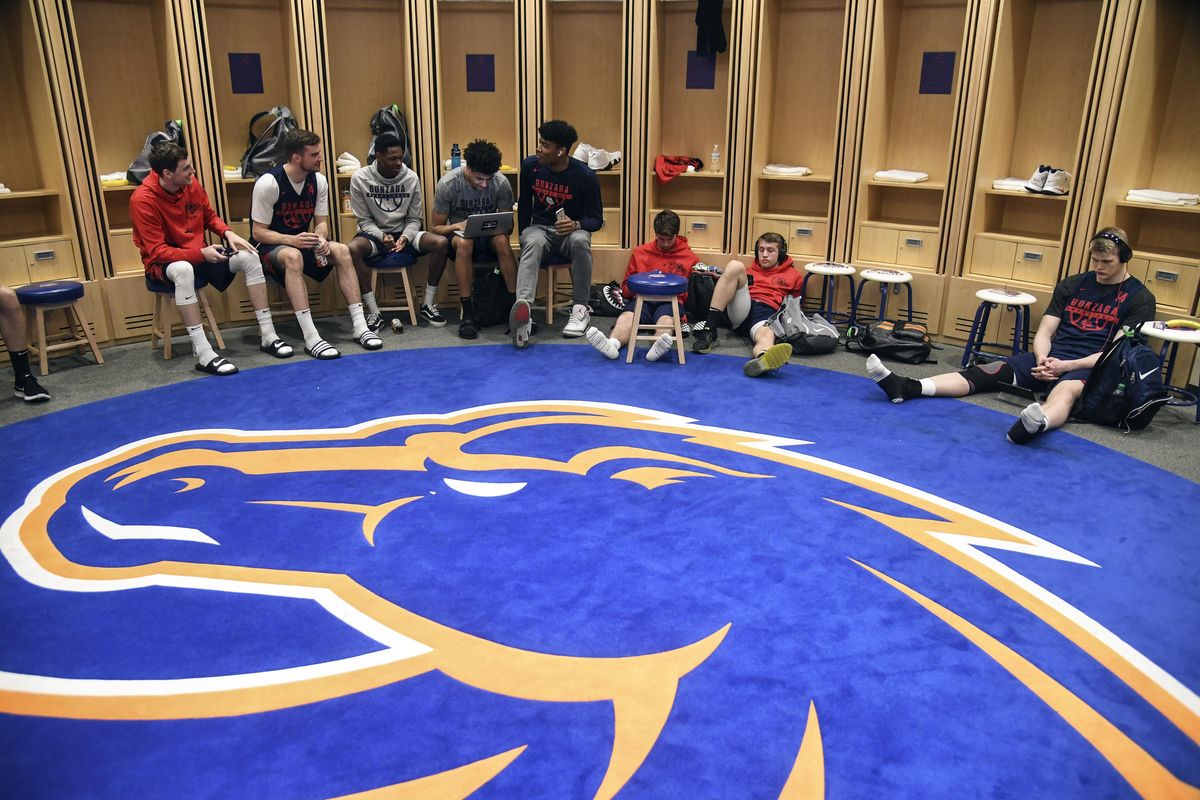John Blanchette: Enjoy the Big Dance, but don’t ignore the band’s sour notes

BOISE – For some of us, this is the best sports day of the year.
A grand basketball bouillabaisse – 64 teams still afloat, all full of hope and possibility and maybe a little self-delusion. A folk hero in waiting with every launched 3-pointer and every blast-off to the rim. Old blue bloods like Kansas and programs with the goods like Gonzaga and noobs like Lipscomb get to – or have to – share in the same conversation, if only for a few hours. There’s as much notoriety to be mined for a first-round upset Cinderella as for the eventual national champion.
And America has to learn where Montana is – and that UMBC isn’t an HMO.
But, man, does college basketball seem to be intent on putting us in a bad mood.
- The pervading bummer of the FBI investigation into the purchase of players in some fashion or another – with the indictments, leaks, suspensions and denials – has been with us since September. It cooled off only a tad this week because the NCAA Tournament selectors – just coincidentally, of course – decided to leave all of the teams branded by the scandal out of the field except Arizona, which just might win the whole thing.
- On Wednesday, Memphis fired coach Tubby Smith – maybe an odd choice to begin with – after just two seasons, seemingly hellbent to slake some community lust to install Penny Hardaway, a hometown icon and now a civic basketball fixer as a guru to Memphis’ deep well of high school talent. No red flags there.
- Midmajor schools wail and warn about being further walled off from March Madness and they’re right – this is a tournament that owes its very life to the first-round upset. Still, c’mon, Saint Mary’s has to try to play somebody to get picked.
- Gonzaga sniffs around a conference change, perhaps to the Mountain West, but who knows? Coach Mark Few told the world Wednesday that “we’ve been talking to a lot of people and this was the one that I guess leaked out.” Good heavens, can Larry Scott be dragged away from his TVpocalypse to talk Zags to the Pac-12? It’s true that nobody much sees the Mountain West as a destination – but still a shame Gonzaga has to think about moving at all.
- Athletic directors insist on handing out straightjacket contracts and crony rollovers – hello, Bill Moos – that all but prevent schools from reasonably making changes that could help their programs.
But mostly the game is under siege for its many hypocrisies, almost all of them related to the NCAA’s hidebound amateurism obsession. In an America that cannot reconcile athlete dissent during a song, it’s hard to imagine people will ever fully embrace the notion of a salaried college athlete. Indeed, they mostly lament the easy bogeyman of one-and-done culture that keeps colleges from hanging on to players longer.
Yes, players jumping from college to the NBA after two semesters – that’s the root of all evil.
The face of that evil took to the podium at the Boise pod of the NCAAs on Wednesday. Kentucky coach John Calipari raved about a local donut shop and having once visited Evel Knievel’s Snake River launch pad, and then settled in for a defense of a rule – not a college rule, an NBA rule – that he’s finessed better than anyone.
He was more than amused by a feature in Inside Higher Ed that worked out a bracket based on Academic Progress Rates and graduation numbers – and had one-and-doneville Kentucky and Bucknell matched in the title game (the Wildcats “beat” Gonzaga in the semis).
“(College basketball) just had the highest graduation rate of athletes in basketball and African-American athletes in basketball in the history of our sport,” he said. “And we’re going to upset this?”
Of course, he also went on to talk about poor families getting loans based on their children’s basketball skills never mind that they’re earning that money already. But in the midst of his bluster, he had one sage caution.
“If you don’t worry about the kids and you worry about the sport,” he said, “you don’t make the right decisions for kids.”
If you broach the game’s current crisis with the young players of March Madness this week, you often get quizzical looks about why you’d want to plunge into a theoretical morass while they’re living the best days of their basketball lives. Maybe they’ll feel differently in 10 years; maybe not.
Mark Few, for one, doesn’t buy that college basketball’s issues are systemic, but acknowledges that some fixes are urgent and “we need to open our mind to them.”
“But at the same time, this tournament is going to show like it does every year,” he said. “It’s the greatest sporting event our country has.”
And this year, maybe, it’s both an entertainment and an agent for discussion – and necessary change.